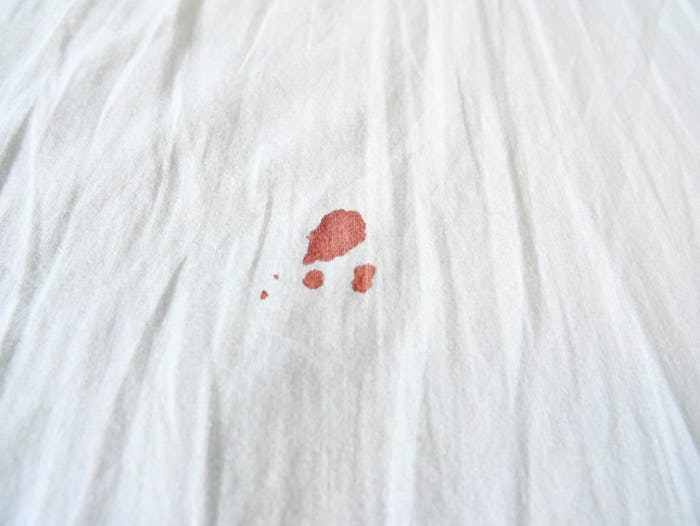
What Is Free Bleeding? It's A Different Way To Deal With Your Period
In a perfect world, periods would be treated like the normal bodily functions that the are. Although some of the stigma around menstruation has loosened up in recent years, plenty of women still stress about hiding all evidence of Aunt Flo every month. On the other hand, some women go the other direction and let nature take its course with no intervention whatsoever. What is free bleeding, and where does this practice fit in to the modern menstruation landscape?
Free-bleeding refers to the practice of foregoing any feminine hygiene products during menstruation, as noted by Broadly. This means you let nature run its course without any pads or tampons in place. Although some women may use special absorbent underwear on heavy days, as noted in Cosmopolitan, others opt out of anything. Why is the idea of free bleeding becoming a trend now?
First, it's important to remember that free bleeding is not a new phenomenon by any means. Periods existed for centuries before tampons and plastic pads came along, so women had to find ways to deal with the blood. Although plenty of women used rags, sponges, or even plant materials to help soak up the the flow, historically many women used nothing at all and bled into their clothing, according to the Museum of Menstruation & Women's Health (MUM). So for many women, free bleeding wasn't a statement at all; it was just a way of life.
For what it's worth, modern women who opt for free bleeding today may do so with more intentionality. In some cases, it's all about normalizing bodily functions and the convenience of foregoing menstrual products. For instance, Kiran Gandhi ran the 2015 London Marathon without any sanitary products in place, because she wanted to be free from any chafing or annoying period maintenance mid-race, according to The New York Times. Gandhi's decision helped make a statement about normal female body functions, and it probably saved her a few minutes of futzing with tampons in a mid-race Porta Potty. It was a bold, but also practical, decision for Gandhi.
Even if you aren't pounding out 26.2 miles or making a public statement about body norms, many women have embraced the idea of free bleeding on their period for all sorts of reasons. According to Mic, there is a psychological benefit to free-bleeding, as many women enjoy foregoing the hassle of dealing with tampons. It can be more comfortable. Furthermore, there is a financial aspect to free bleeding: according to the Huffington Post, an average women could drop $1,773 on tampons over the course of her life. Free bleeding is a cheaper alternative (although you may need to factor in the cost of a few extra loads of laundry). Lastly, there is an environmental concern about disposable pads and tampons. According to The Guardian, an average women could go through 11,000 tampons over the course of her life, and the used pads and tampons can sit in landfills for centuries. In this light, disposable period care can start to look like a nearly permanent solution to a very temporary time of bleeding. Whether she's seeking comfort, monetary savings, or care for the earth, women may embrace the idea of free bleeding for a whole host of reasons.